Zomba Mission Testimony
One of the new converts, a health worker from Zomba Central Hospital explained how impactful the program was to her, she marked the event as a turning point for her life. After graduating from college, she got a good job that compensated her well. She expressed that she was getting a salary that she was “not able to handle”. On top of the well-paying job, she had a fiancé and they had plans on settling down in the near future. She lived an economically and socially satisfying life, but had no major concern about the things of God. It was not until a few months ago that her life’s trajectory took a bad turn; she suddenly lost her well-paying job and broke up with her fiancé without an apparent tangible reason. She invested huge amounts of money with her friends, but they took all her money and left her with nothing more than a disturbed life. Her mental state worsened to the extent of needing medical help and counseling.
She was convinced that her attendance at the Zomba Leadership Mission dinner was not a coincidence, explaining that recent events in her life pointed her towards Christ: she met an old-time friend some three weeks ago whom she knew as a wayward person, but to her surprise, this friend seemed to have changed and she found out that he had received Christ and that is what prompted the change in his life. From that time, she had seriously been contemplating about the changing power of Christ. “I lost a lot of money, I lost friends, I lost everything. I hoped to not commit suicide because the thought often comes when one is in a bad mental state. I have longed to be for Christ and I have wanted my life to really change. I was really touched by the guest of honor’s testimony, I looked at her and I saw that it is never too late. If God indeed forgives, that same God has forgiven me”. She added.
With Christ, she believes that her joy and peace will remain full. In spite of the challenges that she currently has, she is glad that she has made the decision to follow Christ and she will rest the hope of her future in Him.
The Mombasa West Mission in Kenya is the first one to be conducted in the year 2021. The mission is scheduled for 1st to 11th July. The mobilization of missioners and preservation facilitators took place in the month of May. The AEE Kenya team intends to host 300 visiting missioners in 9 zones. The rest of the missioners will come from within Mombasa. This month, there has been a series of continued mobilization and trainings.
The Kayonza Mission in Rwanda was scheduled for 20th – 27th June but following the Volcanic eruption in the neighboring DRC, the mission was postponed to 15th – 22nd August. Preparations for the same are ongoing. At least 127 homes are targeted to be trained to conduct Home Based Evangelism (HBE). Though this is an ongoing activity, 42 households were reached in May this year using HBE and 9 people accepted to follow Christ.
In the Democratic Republic of Congo (DRC), preparations for the Mont-Amba Mission, which is set for 16th to 24th October, are ongoing. Mont-Amba is located South East Kinshasa in DRC. AE DRC Team conducted School of evangelism in the targeted location of the Matete, Ngaba, Kisenso and Lemba districts and a total of 276 participants from 99 local churches were trained. Currently, the team is mobilizing for prayer and funds for the mission. Earlier, 19 different local churches were equipped for further church members’ mobilization in the target area.
AEE Tanzania is set to have its mission between 22nd and 29th August in the capital city, Dar es Salaam. The team has been meeting the Pastors, equipping them through trainings towards the mission and conducting prayer for the 2021 Mission. Mobilization of evangelists and partners to participate in Dar Back-to-God Mission has as well been ongoing. In the month of May, a group of intercessors from different Churches gathered to purposely pray for the mission preparation and all programs at AEE-Tanzania.
In September, AE Uganda will have a mission in Jinja from 19th to 26th. The AE Team conducted a Vision Casting seminar for the mission where 52 leaders from Jinja City attended. This meeting brought together both the Anglican church leaders and Pentecostal church leaders in one house for the same purpose bridging the gap and dealing with misunderstandings that have always been there. Mobilization teams have been established and tasked to draft their strategies to aid achieving the mission targets. An overall steering committee with 18 members was constituted in May to help oversee the preparations. AE Uganda facilitated a training held in Entebbe for 120 evangelists by our partners in ministry who are planning a citywide mission in that city. The training was organized by the Joint Pastors Network in Entebbe city.
AE Southern Africa Region (AESAR) which is comprised of the Malawi, Zambia and Zimbabwe teams is set to hold a mission from 19th – 25th September in Zomba, Malawi. AE Malawi held three training sessions in Zomba ahead of the mission where 85 people were trained. The second phase of training the same group was set for the month of June. In April this year, task team leaders for the Zomba Leadership Mission were successfully appointed and a meeting with Church leaders in Zomba to review mission plans was held.
The AE Zambia team continues to go through the AE Manuals to adequately prepare for both the Kitwe and Lusaka mission scheduled for this year and next year respectively. The AE Zambia team visited Kitwe at the invitation of the Maranatha Pentecostal Assemblies of God church to help with the mobilization of the church for evangelism. Close to about 100 church members turned out for the evangelism outreach in Kalulushi.
In Ghana, the AE team is preparing to have a mission in Lome, Togo from the 15th to the 25th of October. An online meeting with the leaders in Togo was held earlier to aid preparations. The leaders were also able to meet the working committees in person. A HBE online training is scheduled for 30th June.
Preparation is ongoing for AE Ethiopia’s mission scheduled for 22nd – 26th December in Kotebe, North East of Addis Ababa. Last month, the AE team held a Home Based Evangelism training as part of the preparations steps for the mission.
Do not let anyone look down on you because you are young, but set an example for the believers in speech, in conduct, in love, in faith, and in purity
1 Timothy 4:12
Foxfire teams are the youth arm of African Enterprise’s Evangelistic and Mission activities. Each year, across four countries a small team of young people are chosen and intensively trained and equipped for a lifetime of service.
Last year, due to the pandemic, the mix of learning and hands on activities had to be adapted. However, this in turn led not only to souls saved but a lifelong lesson in trusting that God’s word and His mission is unstoppable.
In Kenya, Foxfires conducted a mission in Kawangare estate within Nairobi, witnessing one on one particularly to street children. Of the 301 people who heard the Gospel, 46 made commitments for salvation. Every Sunday the team minister at the Teen’s church in Nairobi Chapel Karen branch through dancing and preaching The Foxfires have been able to minister to 1751 students with 171 making commitment for salvation.
The team also interacted and prayed with patients in the AE Kenya Soweto Kayole clinic and helped clean the compound.
As the pandemic intensified, the Foxfires studied PTC courses online and developed digital content, including short video clips, for evangelism on social media. Group discussions on topical issues affecting teens began almost every day, providing godly counsel to many. More than 613 young people have been reached via these videos and a platform has been created for teenagers to engage.
In Malawi, Foxfires were trained in how to counsel and help their fellow youths who are facing problems like peer pressure, alcohol & substance abuse. They also practiced drama and dance skills in preparation for school and college outreaches.
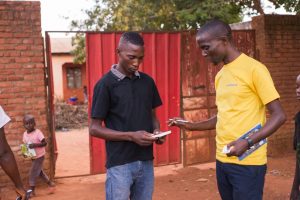
The spike of Covid-19 cases during the year disrupted the Foxfire’s youth ministry plans since schools closed down and markets were highly restricted by government’s orders. However, the decrease of COVID-19 cases during the last two months of the year gave them the opportunity to do ‘whistle stop’ outreaches at several schools and marketplaces. A total of 2,249 people were reached and 319 people committed their lives to Christ. 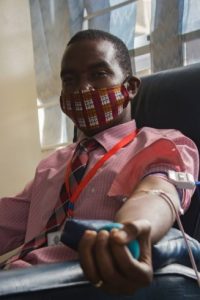
Responding to the COVID-19 pandemic, the team donated blood at Malawi Blood Transfusion Services Office in response to shortages, and went to Ntchisi District to distribute Masks and Soap. There they shared the word of God to over two hundred villagers, and eighty adults committed their lives to Christ.
In November, the Foxfire Alumni Initiative was launched to re-unite participants from 13 years of this ministry in Malawi and testimonies of transformation and empowerment bred a thanksgiving heart among the attendees.
In Zimbabwe, Foxfires learned how to participate in Home Based evangelism and help local communities with aid, including helping build a water tank for horticulture fresh farm produce.
In South Africa, the Foxfires conducted school outreaches, reaching 962, with 373 decisions made for Christ. In a village in Kwa Zulu Natal, in the Greater Edendale area, they did an open air outreach. As the Foxfires did their dance and drama, people started to notice and came out to see what was happening. When the word of God was shared, people were given a chance to accept Christ into their lives.
South Africa continues to be the most severely impacted country in Africa by COVID-19, with the strictest lockdowns on the continent. This has delayed the 2021 team from forming, with Pietermaritzburg having been identified as a hotspot area in early January.
We look forward to what God has in store for us this year. We are trusting Him to open doors for us to minister in the midst of the pandemic. We are also praying for protection over our AE team as we set out to do what God has called us to do.
Please pray:
- Praise God that Foxfire training was able to continue in 2020 with innovative strategies.
- Pray for Foxfire alumni to continue in faithful gospel proclamation and to ‘pass on the baton’ by training others.
- That God would achieve infinitely more that we might ask or think through the Foxfires and bring glory to Himself and Jesus in the church through all generations (Ephesians 3:20-21)
- Pray for the successful establishment of a Fox Fire Youth Empowerment Program in Zambia.
- For God’s mercy on the people of South Africa, and that they would call out to Him for relief from the pandemic.
Read more about our Foxfires >
Watch a video update about our Foxfires >
Stephen Lungu clutched his bag of petrol bombs tightly as he and his fellow gang members approached the large gathering inside the tent. It was just before 7 PM and a huge crowd had gathered to hear the Gospel in Machipisa township on the outskirts of Harare, capital of Zimbabwe. Stephen was the leader of a detachment of a dozen teenage thugs from the Black Shadows, a gang intent on stirring up trouble and rebellion against the white government of pre-independence Zimbabwe. And their intent on this particular evening in 1962 was to blow up the evangelistic meeting. “I want everyone inside that tent to die,” Stephen admonished his gang friends. “At 7 PM I will whistle and everybody throw their stones and petrol bombs into the tent entrance” (74).
With a few minutes to spare before the stroke of 7, however, Stephen stepped into the tent to listen. Now in his late teens, he was an angry and lonely young man, abandoned at the age of seven by his mother and left to fend for himself on the streets of Harare. His father had long since married another woman and moved to Malawi and he had lost contact with his younger brother and sister. He was illiterate, having had only four months of formal education and spending his younger years sleeping under a bridge, retrieving balls at golf and tennis clubs for a few pennies of income and scavenging food out of trash cans in the affluent white folks’ neighborhoods.
His anger and hatred had lately been fanned and given focus by his involvement in the Nationalist Youth League, which promoted a Marxist understanding of African history and advocated the violent overthrow of the minority white government of Rhodesia (as Zimbabwe was called then). Stephen and the Black Shadows aimed to contribute to their country’s liberation from white rule by stealing from whites and seeking to sow general chaos through thuggery and instigating riots.
While Stephen’s fellow gang members grew restless as 7 PM came and went, he continued to listen, first to a beautiful young girl from Soweto in South Africa telling of how Jesus had “transformed everything. There was a strange uncanny authority and resonance with which she spoke of forgiveness and a new start in life,” said Stephen, “and I suddenly felt very dirty and shabby” (75).
Then a Zambian preacher got up and spoke from Romans 6:23 about the wages of sin being death. These words rang in Stephen’s head as he reflected on all the hatred he felt towards so many people that had caused him to pursue a life of violence and chaos. When the preacher then quoted “2 Corinthians 8:9 – ‘For you know the grace of our Lord Jesus Christ, that though he was rich, yet for your sakes he became poor, so that you through his poverty might become rich.’ Suddenly I began to understand what Christianity was all about,” said Stephen. “It was for someone like me! I could identify with this Jesus. He had suffered in all the ways that I knew so well. Poverty, oppression, hunger, thirst, loneliness. I had known all of these, and so had he… My wages were death, but Jesus paid the price for me. On the cross he had become a nobody that I could become a somebody” (80-81).
Still clutching his petrol bombs, Stephen stumbled forward to where the preacher was speaking, even though it was still in the middle of his message. Ushers tried to escort him away, but the preacher forbade them, continuing with his sermon.
A few moments later, rocks pelted the tent and petrol bombs went off, causing a stampede out into the surrounding fields. Stephen’s cronies had gone ahead with their violent plan without him. But the preacher remained, with Stephen on his knees in front of him, pouring out through tears of anguish his story of abandonment and heartache, of anger and violence.
Through the providence of God, the preacher himself had come to Christ and found healing after having been abandoned as a baby by his mother, and shared with Stephen Psalm 27:10: “Though my father and my mother forsake me, the Lord will take me up.” After hearing this, Stephen prayed, “God, I have nothing. I am nothing. I can’t read. I can’t write. My parents don’t want me. Take me up, God, take me up. I’m sorry for the bad things I’ve done. Jesus, forgive me, and take me now” (87).
Stephen went back to his usual bridge to sleep under that night, but as an entirely new person. When he awoke and cleaned himself up, his career as a powerful evangelist got underway as he boarded a bus into the city and began preaching to the other passengers about what had happened to him the previous night. He was thrown off the first bus he tried this on, but when he exited the second one, a small crowd of seven people had been touched by his testimony and wanted to give their lives to Christ.
Stephen realised he didn’t quite know what to do, so he knelt down on the sidewalk with them and prayed, “God, I’ve met these good people on the bus just now, and I told them about how I found your Son Jesus last night. They’ve said they would like to meet him too, because I’ve told them how he loves everyone in the whole world. So, here they are.” Tears rolled down the faces of these new converts as they gave themselves to their Savior. More than forty years later, says Stephen, “I was still in touch with three of them – they became ministers of local churches” (99).
Besides telling people about Jesus, Stephen also felt he must turn himself in to the police and confess his crimes. “The love of Jesus arrested me last night,” Stephen told one of the senior policemen. “Last night I 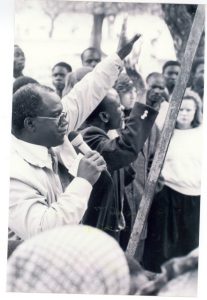 became a Christian, and I realised that what I have been doing is wrong” (100). The incredulous policeman listened to Stephen’s story and tried to plumb him for information on his gang. Stephen confessed to everything he had done, but sought not to betray his old friends. Finally, the policeman said, “Well, Stephen, if your Jesus has forgiven you, we forgive you also. There is nothing to be gained from keeping you here. You are free to go.” Another policeman held out his hand and said, “Here is some money – go and buy yourself a Bible” (103).
became a Christian, and I realised that what I have been doing is wrong” (100). The incredulous policeman listened to Stephen’s story and tried to plumb him for information on his gang. Stephen confessed to everything he had done, but sought not to betray his old friends. Finally, the policeman said, “Well, Stephen, if your Jesus has forgiven you, we forgive you also. There is nothing to be gained from keeping you here. You are free to go.” Another policeman held out his hand and said, “Here is some money – go and buy yourself a Bible” (103).
Though he did not yet know how to read, Stephen went out and proudly bought himself a nice hardcover Bible, which he treasured. With it under his arm, he went out every day on the bus to preach in the central market, telling everyone he possibly could about Jesus. His old friends from the Black Shadows gang found out about this and would come and heckle him, calling him “Bishop” or “Vicar” and kneeling down and pretending to cry in the street. One of them even pulled a knife on him. Stephen also sought out a church to attend, but found that the parishioners there weren’t very enthusiastic about his preaching every day out in the marketplace – it wasn’t “respectable” – and his bringing mostly shabby new converts into the congregation.
Word had got back, though, to the Dorothea Mission, the South Africa-based Christian organisation in whose tent crusade Stephen had just come to Christ. One day as he was preaching, a man named Hannes Joubert, a Dorothea missionary from South Africa who had just moved to Zimbabwe, approached Stephen with an offer to join a Bible school which Joubert was starting in Harare. Stephen was the first student and was amazed at Joubert’s faith in starting this new venture. For he “had no money. He had no building. He had no teachers. He had few books. He had only one student – an uncivilized twenty-year-old straight off the streets whose knowledge of Christianity came from Marxist-driven ideology, one evangelistic tent service attended with the aim of petrol bombing it, and a few follow-up meetings afterwards” (124).
Furthermore, Stephen spoke little English, could not read or write and hardly knew how to eat with a knife and fork or to take a bath without spilling most of the water out of the tub. Stephen took up residence in Joubert’s garage, as it was against the law at that time in Zimbabwe for a black person to stay in a white person’s home, but this new home was an enormous improvement over his former one under the bridge.
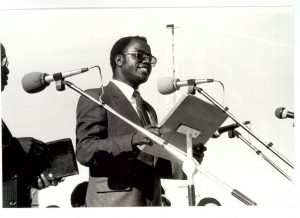 Stephen spent a number of years studying – learning to read and write, learning English, learning about the Bible and even learning about eating properly with a knife and fork! By the mid-1960s the Dorothea Mission welcomed him aboard as one of their missionaries and he began to go out preaching in the ensuing years on missions throughout Zimbabwe and in Mozambique, Malawi, Zambia, Botswana and South Africa. This was a time of major social and political upheaval in most African countries, as they gained independence from colonial powers or, in the case of Zimbabwe, continued to resist the oppression of the ruling white government.
Stephen spent a number of years studying – learning to read and write, learning English, learning about the Bible and even learning about eating properly with a knife and fork! By the mid-1960s the Dorothea Mission welcomed him aboard as one of their missionaries and he began to go out preaching in the ensuing years on missions throughout Zimbabwe and in Mozambique, Malawi, Zambia, Botswana and South Africa. This was a time of major social and political upheaval in most African countries, as they gained independence from colonial powers or, in the case of Zimbabwe, continued to resist the oppression of the ruling white government.
Reprieve for Zimbabwe did not come, however, until 1980 and for South Africa not until 1994. But it meant that Stephen and his colleagues were preaching the message of what many Africans considered “white man’s religion”. Many evangelistic rallies would invite violent protests and find the Dorothea missioners fleeing in a hail of rocks and bricks, or being beaten by a mob. Stephen and others were once kidnapped at 1 AM by members of the Malawi Congress Party Youth League, who were upset that a Dorothea mission in Blantyre had attracted more people than their political rally. Intense prayer by many others secured their release.
New impetus came into the ministry of the Dorothea Mission with the arrival from England in the mid-1960s of Patrick Johnstone, who later became well-known for his prayer guide, Operation World. Stephen and the others learned to build their lives around prayer, study and outreach. Thus mornings “were devoted to prayer and preparation, while each afternoon we began spending three hours out and about, visiting Christians to prepare for meetings, or visiting house to house. We would encourage converts in their new faith. By late afternoon…we would hold a simple open-air meeting to catch people’s attention on their way home from work. By seven we were down at the tent, preparing for the evening’s rally” (154). Johnstone sought to build up Stephen and other young Africans to take over the leadership of the evangelistic outreaches, something Stephen at first found incredibly daunting and difficult to contemplate taking on.
But he persevered and soon was leading missions all over southern Africa, besides getting married to Rachel, a Malawian, in 1969, with whom he has had five children. The most astonishing experience Stephen ever had in a mission came in 1975, back in Harare again, when he was exhausted after a whole day of preaching almost constantly.
He had just finished his last preaching assignment for the evening and made a halfhearted appeal for anyone wanting to come forward. “I unhooked the mike and was turning away from the platform, longing for a cool drink, when someone clutched at my trouser leg. I looked down. A little woman standing in front of the platform, looking up at me. I crouched down to have a better look at her. She was a bit of a mess. She was thin, looked ill and stank of alcohol. She was drunk. ‘I would like to pray with you,’ she said abruptly, staring at me in the most peculiar way” (191). Being exhausted, Stephen tried to fob her off to one of the female counselors, but finally prayed with her. But she kept hanging on to him, finally saying, “‘Do you know you are my son? … Back in Highfield,’ she said. ‘You and your brother John and sister Malesi. From what you said tonight, I know I was – am – your mother.’ Her words sunk in at last, and I felt the shock of it hit me like a physical force. The years peeled away and I relived the terror of that dreadful day. This small, shrivelled-up, ill lady was the glossy, round young woman that had abandoned my sister, my brother and me to probable death twenty years ago” (192-193).
Stephen struggled mightily to forgive his mother, but with the Lord’s help was finally able to do so. Amazingly, she grew in her Christian faith and enrolled in the same Bible school as Stephen had gone through and then joined the Dorothea Mission and became an evangelist herself! Stephen then tracked down his father in Malawi in 1986 and shortly thereafter led him to the Lord. He lived with Stephen and Rachel for some years and died at the ripe old age of 104.
Stephen was invited in 1978 to start up a new Dorothea team in Malawi and then in 1982 joined African Enterprise (AE), an international ministry focused on evangelising the major cities of Africa with teams in ten countries across the continent. Just at this time, he was given a scripture that portended his future.
Isaiah 55 reads: “I will send you to the nations that you do not know.”
New horizons opened up for this former street kid, as he soon found himself preaching not only all around the African continent, including a crowd of 250,000 in Addis Ababa, Ethiopia, in 1994, but all over the world – in North America, the UK, Ireland, Europe and Australasia. He even spent six months living and preaching all over New Zealand in 2004 in an effort to build up a solid base of prayer and financial support for AE there.
“Because I look at myself as a miracle of God’s grace,” Stephen says, “so I believe that the power of Jesus Christ to save sinners still exists. If he can change me, he can change anyone… Winning souls for Christ. It’s my calling. It’s my passion. It’s me”.
Stephen Lungu was the Team Leader for African Enterprise Malawi from 1982 – 2006. He then became CEO of African Enterprise International, taking over from the organisation’s founder, Michael Cassidy. Stephen Lungu was succeeded by Stephen Mbogo as CEO of AEI in 2012.
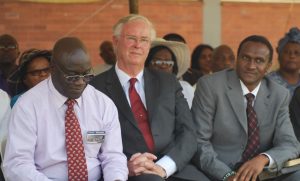
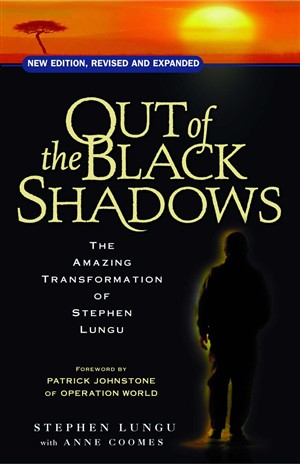
“All in all, things are going well. God is on our side and souls are getting saved. Churches are taking responsibility. HBE is a great tool.”
– Dr Cornelius Huwa, AE Malawi Team Leader
AE’s strategic mission to the city of Zomba is not what we expected it to be. The pandemic has forced this mission to take a different approach – that of Home Based Evangelism (HBE). And yet, HBE is proving an exceptionally effective tool for evangelism.
In Zomba, over 500 leaders have been trained in Home Based Evangelism, and AE is partnering with over 150 churches to reach the city with the Gospel. With each local church taking ownership of HBE, the follow-up of new believers is greatly simplified, and the impact thus far has been profound. HBE is gaining momentum in Zomba, as testimonies are encouraging more believers to participate in evangelism.
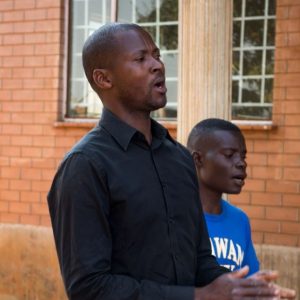 Pastor Suwedi describes how “before sitting under the home-based evangelism training, I could barely stand in front of a crowd. I was immensely drenched in fear, the best I could do in my church… was to carry chairs and tables”. Subsequently appointed to lead a home church, Pastor Suwedi’s fears soon dissipated. His home church attracted people from a village 10km away, Mdera, and he has since planted a small, but thriving church there.
Pastor Suwedi describes how “before sitting under the home-based evangelism training, I could barely stand in front of a crowd. I was immensely drenched in fear, the best I could do in my church… was to carry chairs and tables”. Subsequently appointed to lead a home church, Pastor Suwedi’s fears soon dissipated. His home church attracted people from a village 10km away, Mdera, and he has since planted a small, but thriving church there.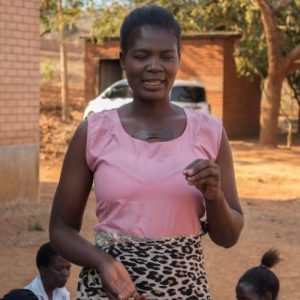
Miss Saidi is one person whose life was transformed while attending Pastor Suwedi’s home church. Abandoned by her husband and left to fend for her family, her life was filled with bitterness. She describes that “my anger would spiral out of control”, and admits that she became abusive towards her children. Tormented by horrific nightmares, rest was elusive.
After accepting Christ, Miss Saidi is surprised by the peace that she has discovered. She mentions how the Lord has used her as a peacemaker in her family: “my brother and parents were not talking to each other due to an argument… the peace I found in Christ helped me mediate their conflict towards resolution”.
And so this great message of reconciliation is spreading, one life at a time. Replacing turmoil with tranquility, and leaving restoration in its wake.
“All this is from God, who reconciled us to himself through Christ and gave us the ministry of reconciliation.” – 2 Corinthians 5:18
Missions in a COVID-19 world.
Our teams have refused to give up on the Great Commission, despite incredibly challenging circumstances in Africa.
Evangelism is the heartbeat of African Enterprise. We exist to share the eternal hope of the Gospel, and this hasn’t changed. In 2020, AE has developed a home-based evangelism (HBE) approach to share the Good News of Jesus, in spite of COVID restrictions.
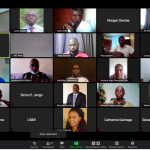 The HBE model equips believers to share the Gospel with their families and neighbours, in a structured and effective way. The approach focuses on personal evangelism, on a large scale. Mission volunteers facilitate home gatherings, where a pre-recorded or live Gospel message is shared using television, radio, mobile phone or social media platforms. The Gospel broadcast is followed by a personal testimony and an invitation to follow Christ, extended by the HBE facilitator.
The HBE model equips believers to share the Gospel with their families and neighbours, in a structured and effective way. The approach focuses on personal evangelism, on a large scale. Mission volunteers facilitate home gatherings, where a pre-recorded or live Gospel message is shared using television, radio, mobile phone or social media platforms. The Gospel broadcast is followed by a personal testimony and an invitation to follow Christ, extended by the HBE facilitator.
Between mid-April and July 2020, our AE teams trained 2,590 pastors and volunteers in the HBE approach, and have found the approach holds enormous potential for evangelism, as well as discipleship. For example, one church in Lukunga, DRC, was able to share Christ with at least 945 people, in multiple homes, on a single Sunday.
One mission volunteer in Kenya, Nancy, has shared the Gospel with over 300 people since the HBE approach was implemented there in May. When she shared the Gospel with a Facebook acquaintance, the 24-year old Margaret, Nancy had no idea that Margaret was suicidal. Nancy describes: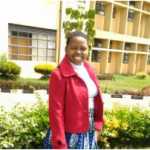
“I shared the Gospel and she made a commitment for salvation during one of our phone calls. The following day we met and from that time, we have created a relationship that is exceptional. It is wonderful to see the great transformation Christ has brought to this sister. She is now happy in the Lord. Today, as I see her smiling, I often have the sobering thought that, if the Gospel had not come her way, she would possibly not be alive!”
Our brothers and sisters in Africa are passionate for the cause of Christ, and our support means so much as they choose to “preach the word of God” and “be prepared, whether the time is favourable or not” (2 Timothy 4:2).



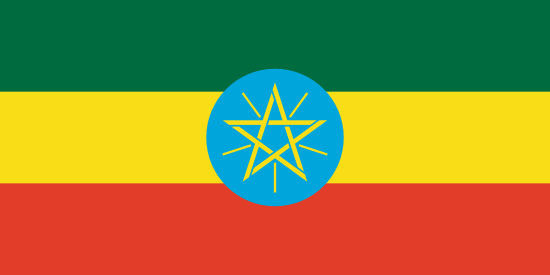



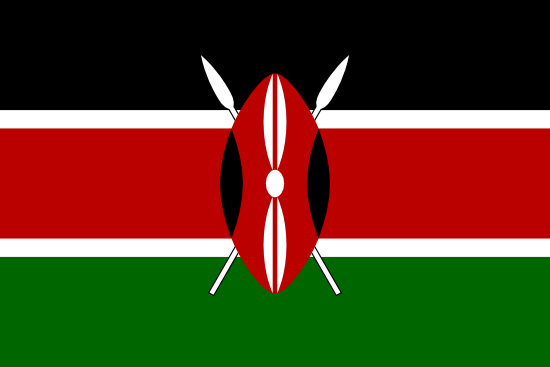
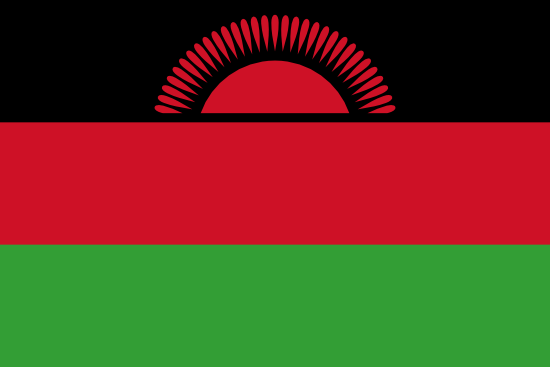



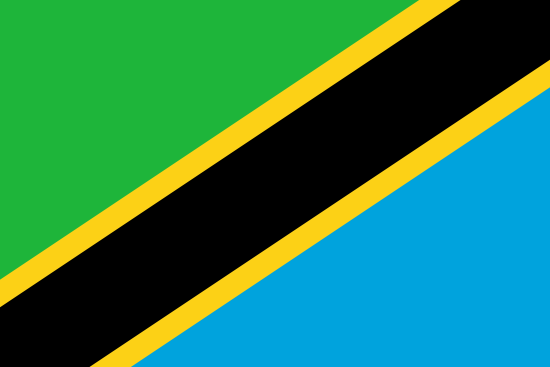
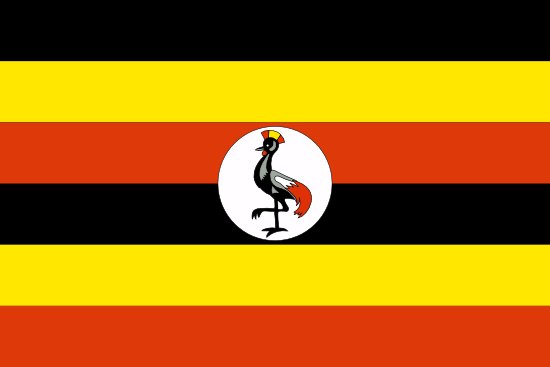

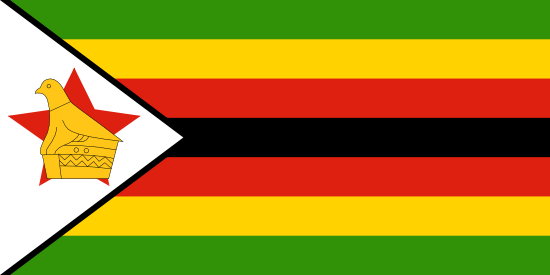



 became a Christian, and I realised that what I have been doing is wrong” (100). The incredulous policeman listened to Stephen’s story and tried to plumb him for information on his gang. Stephen confessed to everything he had done, but sought not to betray his old friends. Finally, the policeman said, “Well, Stephen, if your Jesus has forgiven you, we forgive you also. There is nothing to be gained from keeping you here. You are free to go.” Another policeman held out his hand and said, “Here is some money – go and buy yourself a Bible” (103).
became a Christian, and I realised that what I have been doing is wrong” (100). The incredulous policeman listened to Stephen’s story and tried to plumb him for information on his gang. Stephen confessed to everything he had done, but sought not to betray his old friends. Finally, the policeman said, “Well, Stephen, if your Jesus has forgiven you, we forgive you also. There is nothing to be gained from keeping you here. You are free to go.” Another policeman held out his hand and said, “Here is some money – go and buy yourself a Bible” (103). Stephen spent a number of years studying – learning to read and write, learning English, learning about the Bible and even learning about eating properly with a knife and fork! By the mid-1960s the Dorothea Mission welcomed him aboard as one of their missionaries and he began to go out preaching in the ensuing years on missions throughout Zimbabwe and in Mozambique, Malawi, Zambia, Botswana and South Africa. This was a time of major social and political upheaval in most African countries, as they gained independence from colonial powers or, in the case of Zimbabwe, continued to resist the oppression of the ruling white government.
Stephen spent a number of years studying – learning to read and write, learning English, learning about the Bible and even learning about eating properly with a knife and fork! By the mid-1960s the Dorothea Mission welcomed him aboard as one of their missionaries and he began to go out preaching in the ensuing years on missions throughout Zimbabwe and in Mozambique, Malawi, Zambia, Botswana and South Africa. This was a time of major social and political upheaval in most African countries, as they gained independence from colonial powers or, in the case of Zimbabwe, continued to resist the oppression of the ruling white government.


 Pastor Suwedi describes how “before sitting under the home-based evangelism training, I could barely stand in front of a crowd. I was immensely drenched in fear, the best I could do in my church… was to carry chairs and tables”. Subsequently appointed to lead a home church, Pastor Suwedi’s fears soon dissipated. His home church attracted people from a village 10km away, Mdera, and he has since planted a small, but thriving church there.
Pastor Suwedi describes how “before sitting under the home-based evangelism training, I could barely stand in front of a crowd. I was immensely drenched in fear, the best I could do in my church… was to carry chairs and tables”. Subsequently appointed to lead a home church, Pastor Suwedi’s fears soon dissipated. His home church attracted people from a village 10km away, Mdera, and he has since planted a small, but thriving church there.
 The HBE model equips believers to share the Gospel with their families and neighbours, in a structured and effective way. The approach focuses on personal evangelism, on a large scale. Mission volunteers facilitate home gatherings, where a pre-recorded or live Gospel message is shared using television, radio, mobile phone or social media platforms. The Gospel broadcast is followed by a personal testimony and an invitation to follow Christ, extended by the HBE facilitator.
The HBE model equips believers to share the Gospel with their families and neighbours, in a structured and effective way. The approach focuses on personal evangelism, on a large scale. Mission volunteers facilitate home gatherings, where a pre-recorded or live Gospel message is shared using television, radio, mobile phone or social media platforms. The Gospel broadcast is followed by a personal testimony and an invitation to follow Christ, extended by the HBE facilitator.